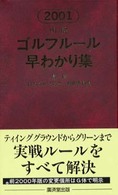- ホーム
- > 洋書
- > 英文書
- > Cinema / Film
Full Description
With more than 250 million speakers globally, the Lusophone world has a rich history of filmmaking. This edited volume explores the representation of the migratory experience in contemporary cinema from Portuguese-speaking countries, exploring how Lusophone films, filmmakers, producers, studios, and governments relay narratives of migration.
Contents
Introduction; Cacilda Rêgo and Marcus Brasileiro 1. Imagining Migration: A Panoramic View of Lusophone Films and Tabu (2012) as Case Study; Carolin Overhoff Ferreira 2. Thinking of Portugal, Looking at Cape Verde: Notes on Representation of Immigrants in the Films of Pedro Costa; Nuno Barradas Jorge 3. Outros Bairros and the Challenges of Place in Post-colonial Portugal; Derek Pardue 4. Deterritorialisation Processes in the Portuguese Emigratory Context: Cinematic Representations of Departing and Returning; Fátima Velez de Castro 5. Performing Criminality: Immigration and Integration in Foreign Land and Fado Blues; Frans Weiser 6. Two Hungaries and Many Saudades: Transnational and Postnational Emotional Vectors in Contemporary Brazilian Cinema, Jack Draper III 7. Reverse Migration in Brazilian Transnational Cinema: Um passaporte húngaro and Rapsódia Armênia; Nadia Lie 8. Otherness and Nationhood in Tizuka Yamasaki's Gaijin I and Gaijin II; Álvaro Baquero-Pecino 9. Cinema, Aspirins, andVultures. A Double Escape from a Global Conflict; Ursula Prutsch 10; European Immigrants and the Estado Novo in Contemporary Brazilian Cinema; Carolina Rocha 11. The Migrant in Helena Solberg's Carmen Miranda: Bananas is My Business; Regina R. Felix








